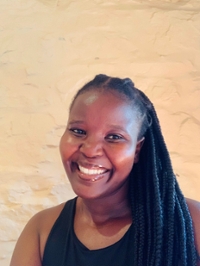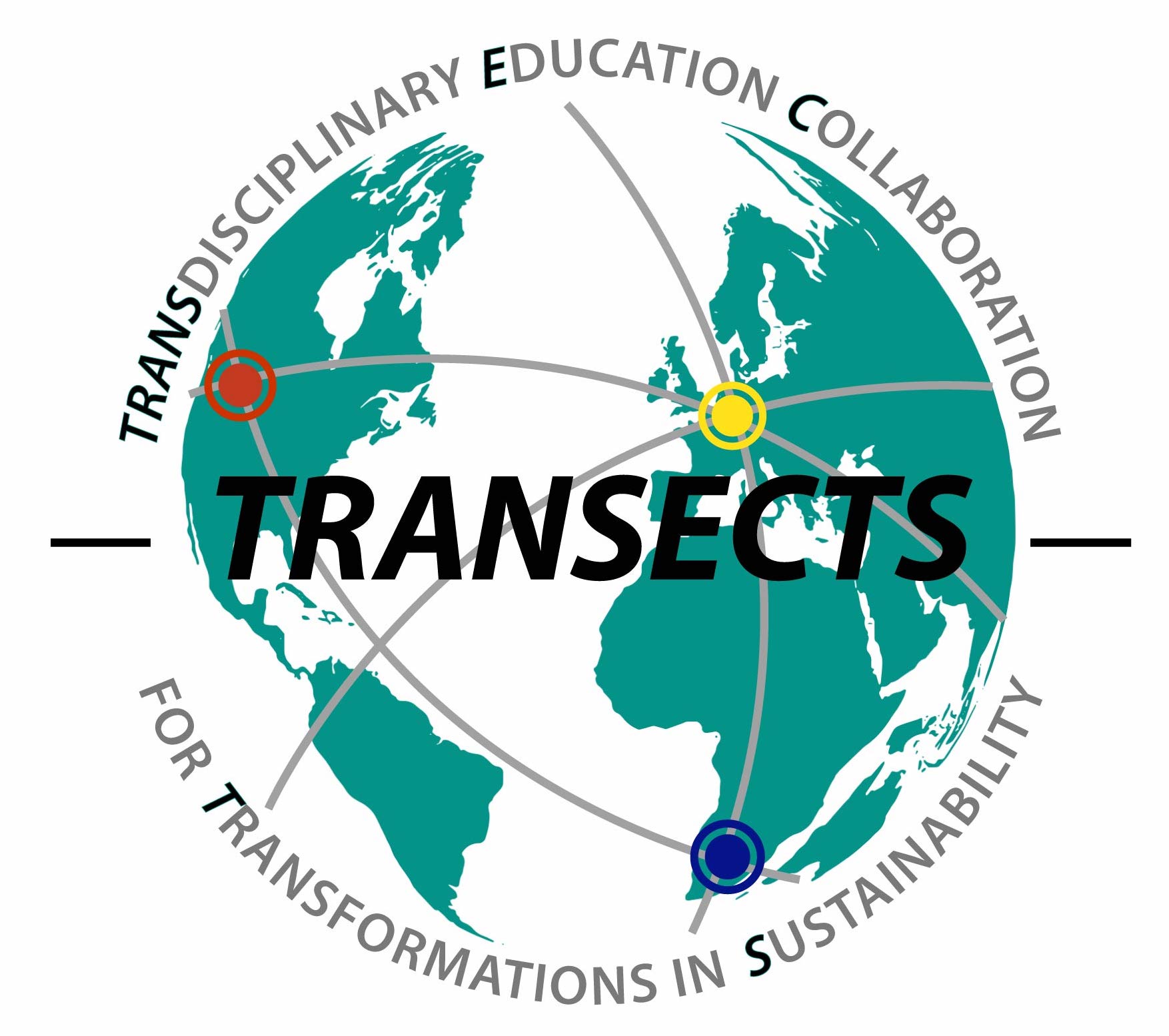Meet the START
The Student and Trainee Advisory Round Table (START) is a student- and trainee-led group that advises and supports TRANSECTS on engaging students and trainees in TD learning and TRANSECTS activities. TILL alumni, as well as any student or trainee interested in TD or sustainability, are welcome to serve as advisors on this roundtable.
To learn more about the TRANSECTS Youth Network for Transdisciplinarity, join the LinkedIn group or contact start@usask.ca.
START Student Advisors (2025-2026):
Chloe Canning (University of Saskatchewan, Canada)
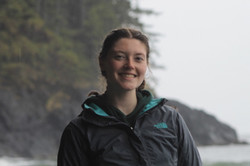
My name is Chloe Canning, and I am a PhD candidate at the School of Environment and Sustainability at the University of Saskatchewan. I completed my environmental science undergraduate degree with a soil science minor while working in the Mistik Askîwin Dendrochronology lab at the University of Saskatchewan. My research focuses on understanding how heavy metals move through and are retained within tree systems to determine the implications of heavy metal uptake on tree growth and the potential remediation of heavy metal-contaminated sites using synchrotron techniques. I have also assisted with multiple undergraduate classes and worked as a sessional lecturer for the fourth-year sustainability in action capstone course at the University of Saskatchewan. I was a part of the 2024 TILL on Vancouver Island, where we participated in transdisciplinary research looking at the effects of invasive alien species and their impacts on the local environment. The TILL was a wonderful experience that allowed me to step outside of my comfort zone and explore research methods I had never participated in before. I have also been fortunate to meet and learn from many wonderful people within the TRANSECTS network. The experiences and skills gained through these opportunities will continue to impact my perspectives in research and teaching.
Parmveer Singh (University of Saskatchewan, Canada)
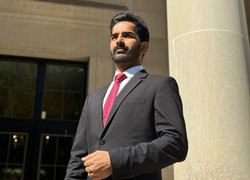
Athef Ayub Khan (Sustainability Practitioner / Software Developer, Canada)
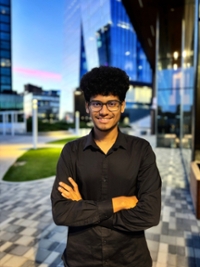
I am a Software Development student with a strong passion for environmental sustainability, specializing in integrating technology and sustainable practices. My background spans computer science, environmental science, and climate advocacy, with a focus on leveraging IT to address sustainability challenges.
Recently, I completed the Connecting for Climate Action course at Western University, where I explored concepts like positionality, Two-Eyed Seeing, and reciprocity, deepening my understanding of climate issues and cultural perspectives. This inspired me to develop projects that merge my web development skills with my dedication to sustainability. One such project is EcoWander Canada, a MERN-stack web application aimed at promoting sustainable travel across Canada. EcoWander will offer eco-conscious travelers the tools and resources to make environmentally responsible travel decisions.
I have also been actively involved in environmental advocacy, participating in The Climate Reality Project , Prairies Advocacy Training with the Manitoba Transportation group, where I addressed transportation’s impact on climate change by creating a social media poster. I love communicating and interacting with people, especially discussing topics related to sustainability and environmental science, which has enriched my experiences at events like the Youth Nature Keepers Summit in Ottawa and Saskatoon. Contributing to the OCIC’s Innovation Lab 2024 "Salt-ernatives" project for eco-friendly deicing solutions highlighted the power of collective action on issues like invasive species and sustainable practices. Additionally, attending the Ontario Regional Youth Conference 2024, focused on fostering unity, inclusivity, and environmental stewardship, has further strengthened my commitment to promoting peace, unity, and sustainability within diverse communities.
Having been born and raised in Kuwait and educated in diverse settings, I highly value transdisciplinary collaboration. I am passionate about connecting with people from various backgrounds to build relationships, exchange knowledge, and tackle challenges together. With every project and interaction, I am doing my best to make this world a better place to live.
"Software Engineer by Profession, Environmental Sustainability Practitioner by Passion – For a Better Tomorrow!"
Stephanie Le Courtois (University of Saskatchewan, Canada)
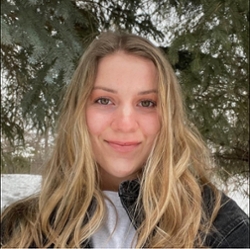
In partnership with Muskeg Lake Cree Nation and the Redberry Lake Biosphere Region, my MES research explores the value people derive from creating and maintaining new land stewardship/sustainable land management demonstration sites within their communities. I'm gathering data using qualitative research methods. I'm also spending time in both partner communities, helping to build and maintain the demonstration sites, and supporting other community activities and events in the name of relationship-building and reciprocity.
I know how vital transdisciplinary work is to sustainability efforts and am very excited to be a part of TRANSECTS and START. I am also taking the lead on designing and piloting a USask volunteer program through TRANSECTS. The program's aim is to continue utilizing School of Environment and Sustainability personnel and resources in volunteer efforts as a continued gesture of reciprocity with research partners.
I am glad to be a part of the TRANSECTS community!
Andrew Batycki (University of Saskatchewan, Canada)
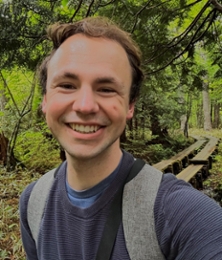
My name is Andrew Batycki (he/him), and I am a Master of Environment and Sustainability student at the University of Saskatchewan. I obtained a BSc in Civil-Environmental Engineering with a minor in political science from the University of Alberta, where exploring the intersection between these two disciplines helped spark an interest in the transdisciplinary world of sustainability. My research focuses on the potential for peer learning among farmers to promote wetland conservation behaviours. I’m particularly interested in how community and non-economic approaches can promote better conservation outcomes.
Takudzwa Makuwa (Boots) (Rhodes University, South Africa)
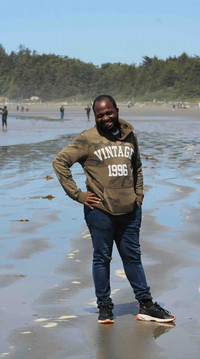
My name is Takudzwa Makuwa, known as Boots, and I am a Master of Commerce in Financial Markets graduate from Rhodes University. Prior to obtaining my masters, I had obtained a Bachelor of Economics during my undergraduate. My research interest lies in portfolio optimization within financial markets and the world of investment.
I had the privilege to attend the 2024 the Transdisciplinary International Learning Laboratory (TILL) in Canada where I worked with various community partners, researchers and members, with a team to address the impact of climate change on invasive plant species.
Over the years, I have grown to love to lecture students in classroom and I hope to pursue full time academic staff while also consulting for public and private sector in the field of economics. To achieve my goals, I plan to complete my PhD in either economics or finance by 2030.
I am excited about joining the START Team and contribute to the success of the program.
Ryan Sojnocki (University of Saskatchewan, Canada)
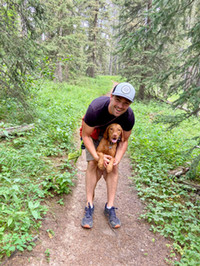
I am a master’s student in Sustainability at the University of Saskatchewan, with a background in Environment and Business from the University of Waterloo. My work lies at the intersection of business, ecology, and society, driven by the belief that when designed thoughtfully, business can be a powerful tool for addressing complex environmental and social challenges.
During the 2025 South Africa Till, hosted in the Garden Route Biosphere, I co-developed a replicable toolkit to assist CapeNature in capturing visitor values and cultural ecosystem services at their nature reserves. This experience deepened my understanding of how cultural, political, and historical contexts shape the foundations of solutions to wicked problems. Each solution involves unique stakeholders, disciplines, and perspectives, and a transdisciplinary approach provides the necessary framework to holistically navigate such complexity.
I am also launching a podcast to highlight transdisciplinary practices and explore people’s relationships with the land, while weaving in important environmental stories. My goal is to inspire individuals to foster intentional and regenerative connections with nature by learning from practices, people, and organizations across the world. I believe it is only when we have a relationship with something that we truly value and protect it. If you’re interested in collaborating on an episode or recommending a guest, I’d love to hear from you!
Ayomide Akinfasoye (Eberswalde University for Sustainable Development, Germany)
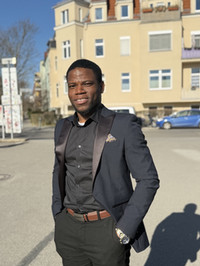
My name is Ayomide Akinfasoye, and I am originally from Nigeria, now based in Germany. I completed my B.Sc. in Geography and Environmental Management at the University of Ilorin, Nigeria, and recently earned my M.Sc. in Biosphere Reserves Management at Eberswalde University for Sustainable Development, Germany. My research interests lie at the intersection of geospatial technologies and environmental sustainability. I am particularly passionate about applying Geographic Information Systems (GIS), remote sensing, and advanced techniques such as machine learning and deep learning to tackle pressing issues such as forest monitoring, urban sprawl, climate change resilience, biodiversity conservation, and human–environment interactions within biosphere reserves.
Over the course of my academic and professional journey, I have had the privilege of participating in several internships and collaborative projects both in Germany and internationally. A particularly transformative experience was my involvement in the Transdisciplinary International Learning Laboratory (TILL) 2024 programme held in the Mount Arrowsmith Biosphere Region, Vancouver Island, Canada. Through this collaboration, I gained invaluable insights by working alongside scholars from Canada and South Africa, an experience made possible by the dedicated TRANSECTS team. The programme not only deepened my academic and professional expertise but also broadened my cultural, intellectual, and personal perspectives, allowing me to appreciate complex environmental challenges from multiple standpoints.
As a member of the START Advisory Team, I am eager to contribute meaningfully to TRANSECTS’ mission and goals, while also further honing my interpersonal, cross-cultural, and collaborative skills. I see this as an opportunity not only to give back but also to continue growing as a researcher and global citizen.
S. Hakan Armağan (University of Saskatchewan, Canada)
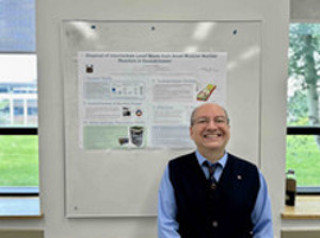
I grew up in Turkey and got a B.Sc. degree in physics from the University of Ankara. I went to the U.S. to learn English at the University of Tulsa, OK. During my MSc in physics, I did my research in nuclear physics and taught calculus-based physics at Creighton University in Omaha, Nebraska. I received a master’s degree in secondary science teaching from the University of Nebraska – Lincoln and taught various levels of physics at a public high school in Omaha from 2004 to 2021. During summers, I did research fellowships in nuclear physics, energy and sustainable materials engineering at various U.S. national and university labs. Working at national labs inspired me to create my own course for my school, Energy and Nuclear Sciences, to examine all energy resources and their engineering applications, including environmental and social aspects and sustainability. My interests in connecting physics, engineering with social aspects of energy took me to New Zealand as a Fulbright Scholar at Victoria University of Wellington. I examined energy and environmental sustainability from engineering, cultural, and policy aspects. Fulbright experience inspired me to learn more about cultural aspects of energy. I received a master’s degree (thesis- based) in environment and sustainability from the SENS on social resilience to energy insecurity a northern Indigenous community using anthropological framework. I attended mini-TILL research program in Germany in 2022. Currently, I am a PhD student at the College of Engineering (Univ. of SK), focusing on nuclear waste management.
Tolulope Akinbobola (Pennsylvania State University, United States)
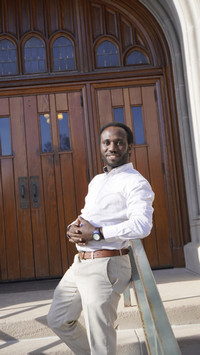
Tolulope Akinbobola is an Early Career Researcher dedicated to advancing sustainable development and natural resources management through rigorous research and participation in program evaluation. Currently, he is a Doctoral Student in the Education, Development and Community Engagement (EDCE) program at the Pennsylvania State University, USA, where his work focuses on understanding human interaction with natural resources management through the system thinking lens.
Tolulope’s work is highly transdisciplinary, drawing on extensive collaboration with researchers across crop sciences, sociology, and environmental resources management. This interdisciplinary approach built upon his foundational education: a B.S. and M.Sc. in Agricultural Extension and Communication from the Federal University of Technology in, Nigeria.
With practical experience in both the academic and non-profit sectors, he brings sustainable, applied approaches and community-driven solutions to real-world challenges. He previously served as a Monitoring and Evaluation Lead for SUCDEN Nigeria, leading several formative and summative evaluations of SUCDEN’s sustainability projects across Nigeria. He is an active member of some professional associations, contributing to working groups on water, energy and food nexus; sustainability; natural resources management; and emerging evaluation practices discourse. His goal is to bridge the gap between academic theory and practical, sustainable global development.
His interest in transdisciplinary work and efforts inspired him to be part of the MEL team for the TRANSECT program and he is excited to be a part of TRANSECTS and START community.
Jagadeesh Naik Kimavath (Pennsylvania State University, United States)
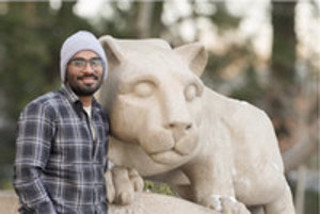
I am Jagadeesh Naik Kimavath, a Ph.D. student in the department of Agricultural Economics, Sociology, and Education (AESE) at the Pennsylvania State University, USA. With a Master’s from National Dairy Research Institute (NDRI) and a Bachelor’s from Acharya NG Ranga Agricultural University in India, I focus on program planning, evaluation, and the integration of technology within agricultural practices and extension education. My professional experience includes serving as a research assistant with an NGO in India, offering valuable insights into technology adoption and farmers’ livelihoods. I am actively involved in the ongoing development of the TRANSECTS evaluation plan and look forward to further growth through my participation in START, which presents avenues for professional and personal advancement.
Matsobane Malebatja (Rhodes University, South Africa)
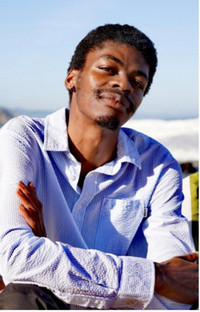
Hello, Matsobane here!
I am from the grasslands of Limpopo northern South Africa. The ocean is first love; one I encountered through the television screen of my childhood. I hold a BSc in Marine Biology from the University of KwaZulu Natal. I then studied for my honours degree and am currently pursuing my MSc in Environmental Science at Rhodes University.
My deepest passion lies in participatory action research at the grassroots level, focusing on co-identification of sustainability challenges and the co-creation of solutions with those who hold memory and vision for land and seascapes. For my MSc, I am mapping the pathways and mechanisms through which community-based and scientific knowledge entre governance spaces, serving as evidence to support decision-making.
I believe sustainability transformations must be grounded in equity and justice. I advocate for a two-eyed seeing approach to decision-making – one that ensures diverse knowledge systems (which can be complementary) are not only represented but have real, impactful influence on the governance and management of marine living resources.
Attending TILL2025 further nurtured the seed of TD planted during my academic journey at Rhodes University. Today, I see TD as a way of life: diversity as a catalyst for resilience and growth, and complexity as a companion to progress. I can’t claim to be an artist, but I relentlessly attempt watercolour painting, crocheting, and singing!
When I am not engaged in advocacy work with Youth4MPAs or Youth x Conservation, you’ll likely find me wandering the mountains back home or enjoying my proximity to the sea during my university days.
Diego Galdamez (University of Saskatchewan, Canada)
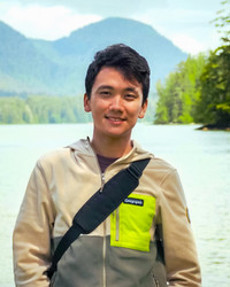
Hi there, my name is Diego. I hold a bachelor’s degree in Agribusiness and Management from National Chung Hsing University in Taiwan, and I am currently finalizing my master’s degree in Environment and Sustainability at the University of Saskatchewan. Through my education in Asia and the Americas, as well as my work experience as an international business developer manager, I have seen the potential impact that renewable energy can have on the public and private sectors.
I became interested in energy security during my undergrad and decided to put my efforts into investigating it further. My work revolves around the renewable energy and economic growth nexus, utilizing methodology from economics, statistics, and GIS to contribute to the understanding of this relationship. I bring the quantitative scholarship to a mostly qualitative-led literature on renewable energy and remote communities in Canada. I hope to bring that element as part of the transdisciplinary research ethos of TRANSECTS.
I am happy to be a part of this amazing START cohort. I participated in the 2024 learning lab (TILL), where I learned from exceptional researchers from different backgrounds and disciplines from mine. This lab made solving complex problems more challenging, but thanks to that, we were able to uncover rich solutions and insights that would be hard to find for a single discipline in isolation. This made me understand that TD researchers are essential in addressing complex problems that spill into different disciplines and require the expertise of various sectors.
START Student Advisors (2024-2025):
Chloe Canning (University of Saskatchewan - Canada)
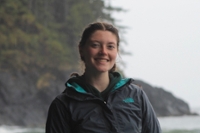
My name is Chloe Canning, and I am a PhD candidate at the School of Environment and Sustainability at the University of Saskatchewan. I completed my environmental science undergraduate degree with a soil science minor while working in the Mistik Askîwin Dendrochronology lab at the University of Saskatchewan. My research focuses on understanding how heavy metals move through and are retained within tree systems to determine the implications of heavy metal uptake on tree growth and the potential remediation of heavy metal-contaminated sites using synchrotron techniques. I have also assisted with multiple undergraduate classes and worked as a sessional lecturer for the fourth-year sustainability in action capstone course at the University of Saskatchewan. I was a part of the 2024 TILL on Vancouver Island, where we participated in transdisciplinary research looking at the effects of invasive alien species and their impacts on the local environment. The TILL was a wonderful experience that allowed me to step outside of my comfort zone and explore research methods I had never participated in before. I have also been fortunate to meet and learn from many wonderful people within the TRANSECTS network. The experiences and skills gained through these opportunities will continue to impact my perspectives in research and teaching.
Frederike Helmke (Eberswalde University for Sustainable Development - Germany)
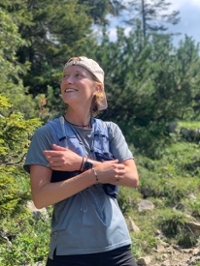
I hold a B.Sc. in Ecology and Environmental Planning and am currently in my research semester (3rdsemester) of my Master’s program in Global Change Management in Eberswalde. Throughout my research semester, I’m working with a small NGO to develop and implement a neighborhood program based on Marshall Ganz's organizing principles and the concept of social tipping points. Our goal is to create a self-replicating movement of neighborhood groups in Berlin, actively implementing climate mitigation and adaptation measures. Through this program, we aim to strategically intervene where our impact can be most effective but also most challenging.
Beyond academics, I am all in for team sports. I have been playing field hockey since childhood. I love traveling, exploring new cultures, and meeting people from all walks of life. I’m excited to be part of the new START cohort, which I see as a great opportunity to stay connected with the people I met throughout my TILL experience and to deepen my involvement with TD research.
Jon Chance (Eberswalde University for Sustainable Development - Germany)
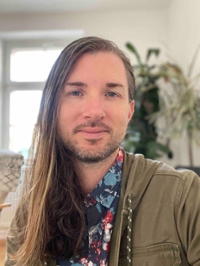
As a graduate student in Biosphere Reserves Management at Eberswalde University for Sustainable Development, I am interested in landscape ecology and regional conservation management. My interdisciplinary bachelor’s degree in Resource Conservation from the University of Montana laid the foundation for my role as a researcher. I am also an alum of the 40th class of Wilderness and Civilization, an experimental field-based program offered by the Wilderness Institute in Missoula, Montana.
During the 2024 TILL, hosted by Vancouver Island University and the Mount Arrowsmith Biosphere Region in British Colombia, Canada, I was further inspired by the inclusive quality of the transdisciplinary concept for applied research. It was also a great experience to learn directly from a new set of international peer researchers.
I am driven to bridge different siloed disciplines and enjoy connecting with a wide variety of people in order to help address complex issues like climate change and sustainable development.
Shannon Rutherford (Rhodes University - South Africa)
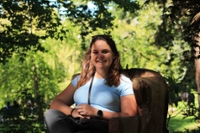
My name is Shannon Rutherford, and I am currently completing my MSc in Biotechnology with a focus on early, affordable cancer diagnostics. In the first year of my master's, I engaged in outreach work, testing water quality for surrounding communities, which sparked my interest in applying science to real-world challenges. Living in South Africa, my connection to nature has driven my commitment to sustainability and health-focused research.
In 2024, I attended the Transdisciplinary International Learning Laboratory (TILL) in Canada, where I worked with researchers and community members to address complex local issues. This experience highlighted the power of collaboration and diverse perspectives in finding innovative, sustainable solutions.
I am excited to bring my passion for science, nature, and transdisciplinary research to the START Student Advisors, where I look forward to contributing to and learning from this vibrant community.
Aisha Adelah (University of Saskatchewan - Canada)
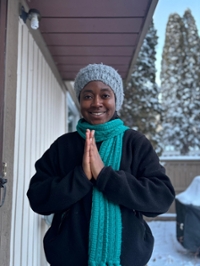
Athef Ayub Khan (Sustainability Practitioner / Software Developer - Canada)

I am a Software Development student with a strong passion for environmental sustainability, specializing in integrating technology and sustainable practices. My background spans computer science, environmental science, and climate advocacy, with a focus on leveraging IT to address sustainability challenges.
Recently, I completed the Connecting for Climate Action course at Western University, where I explored concepts like positionality, Two-Eyed Seeing, and reciprocity, deepening my understanding of climate issues and cultural perspectives. This inspired me to develop projects that merge my web development skills with my dedication to sustainability. One such project is EcoWander Canada, a MERN-stack web application aimed at promoting sustainable travel across Canada. EcoWander will offer eco-conscious travelers the tools and resources to make environmentally responsible travel decisions.
I have also been actively involved in environmental advocacy, participating in The Climate Reality Project , Prairies Advocacy Training with the Manitoba Transportation group, where I addressed transportation’s impact on climate change by creating a social media poster. I love communicating and interacting with people, especially discussing topics related to sustainability and environmental science, which has enriched my experiences at events like the Youth Nature Keepers Summit in Ottawa and Saskatoon. Contributing to the OCIC’s Innovation Lab 2024 "Salt-ernatives" project for eco-friendly deicing solutions highlighted the power of collective action on issues like invasive species and sustainable practices. Additionally, attending the Ontario Regional Youth Conference 2024, focused on fostering unity, inclusivity, and environmental stewardship, has further strengthened my commitment to promoting peace, unity, and sustainability within diverse communities.
Having been born and raised in Kuwait and educated in diverse settings, I highly value transdisciplinary collaboration. I am passionate about connecting with people from various backgrounds to build relationships, exchange knowledge, and tackle challenges together. With every project and interaction, I am doing my best to make this world a better place to live.
"Software Engineer by Profession, Environmental Sustainability Practitioner by Passion – For a Better Tomorrow!"
Anna Gowera (University of the Witwatersrand - South Africa)
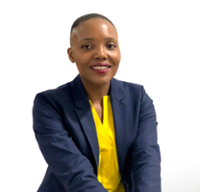
My name is Anna Gowera. I am currently pursuing a PhD in Environmental Sciences, with research focussing broadly on mining, society and the environment. I also hold a Master of Science in Environmental Sciences degree, a Bachelor of Science (Honours) degree in Environmental Science and Health, and a small collection of certificates in between. I love learning! I am equally passionate about sustainability science, and fell in love with transdisciplinary research as a TILLie in the 2024 Transdisciplinary International Learning Lab (TILL) held in Vancouver Island. Having been immersed in the beauty and value of multiple biosphere regions in this program, I have a renewed zeal for making positive impact that lasts, for now and into the future, through learning from nature and using the knowledge of the past. It is an honour to serve on the TRANSECTS START team.
Stefan Rummler (Eberswalde University for Sustainable Development - Germany)
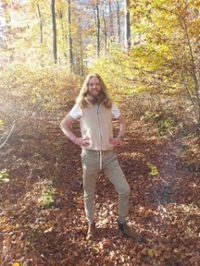
I am studying Forestry System Transformation (FST) at the Eberswalde University for Sustainable Development and had the pleasure of participating in the TILL 2024 on Vancouver Island, which was an extraordinary educational and personal experience for me. Since then, I have been fascinated by the idea of TD and I am convinced that this is the most promising approach to solve future sustainability conflicts.
Currently, I am writing my master's thesis about a research stay in the Lake Bosomtwe Biosphere Reserve in Ghana where I used a TD approach to explore the potential of traditional food forest practices to improve the sustainability of farming activities, and tried to initiate a demonstration food forest in the Biosphere Reserve to generate direct benefits for the local communities.
Putuma Balintulo (Rhodes University - South Africa)
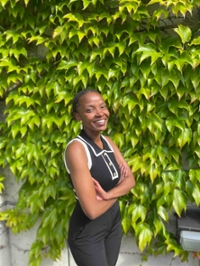
Molweni! My name is Putuma Balintulo. I am a PhD candidate in the Department of Environmental Science at Rhodes University, South Africa. I love sunsets, the ocean and rivers, the wild- well everything nature and believe in the mutual, inextricable relationship between people and nature. This has shaped my academic interests, which focus on Earth and environmental sciences, with a particular interest on conservation, global change, and ecological restoration, which I believe to be vital components of resilient and sustainable social-ecological systems where both people and nature can thrive. I hold BSc, BSc Honors, and Masters of Science degrees from Rhodes University.
My PhD research explores the use of TEK in conservation, and how it can enhance conservation efforts, leading to more just, equitable, and sustainable biodiversity conservation outcomes. Emphasizing the value of traditional knowledge systems, the study seeks to highlight pathways for integrating TEK into mainstream conservation strategies, ultimately fostering resilience and biodiversity in ecosystems.
I had the privilege of participating in TILL 2024 at Vancouver Island University (VIU), British Columbia, which deepened my passion for engaging with diverse perspectives and collaborating toward transformative sustainability. I strongly believe in the power of transdisciplinary research to bring together individuals from different fields and worldviews. I advocate for creating spaces and networks that promote diversity, adaptability, resilience, and sustainable growth.
Parmveer Singh (University of Saskatchewan - Canada)
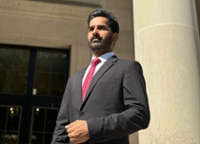
Stephanie Le Courtois (University of Saskatchewan - Canada)

Andrew Batycki (University of Saskatchewan - Canada)

My name is Andrew Batycki (he/him), and I am a Master of Environment and Sustainability student at the University of Saskatchewan. I obtained a BSc in Civil-Environmental Engineering with a minor in political science from the University of Alberta, where exploring the intersection between these two disciplines helped spark an interest in the transdisciplinary world of sustainability. My research focuses on the potential for peer learning among farmers to promote wetland conservation behaviours. I’m particularly interested in how community and non-economic approaches can promote better conservation outcomes.
START Student Advisors (2023-2024):
Danielle Spence (University of Saskatchewan - Canada)
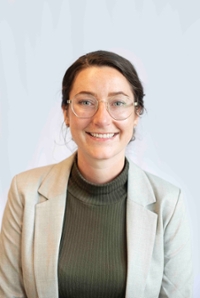
I am completing my PhD in Environment and Sustainability at the University of Saskatchewan. My PhD research focuses on understanding and management of harmful algal blooms in lakes.
I attended the Mini-TILL in Germany. I enjoyed the entire process of working in a team and with a community to understand and propose solutions to a locally-relevant issue. I enjoy the opportunity to get to know people, build relationships, and understand their perspectives on issues of sustainability. Working on issues that matter to people is incredibly fulfilling and makes me feel like I am helping to make a difference.
Chantal Krumm (Leuphana University Lüneburg - Germany)
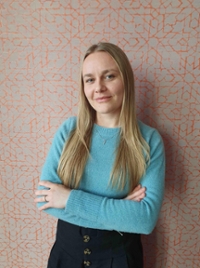
I studied Human and Environment (B.Sc.) with a focus on Environmental Economics and Environmental Psychology at the University of Koblenz-Landau. I then studied the Double Degree Program Global Sustainability Science at Leuphana University Lüneburg in Germany and Arizona State University in the USA. Recently, I started a position as a research assistant at ISOE – Institute for Social-Ecological Research working in the field of transdisciplinarity.
In my master’s thesis, I focused on the institutionalization of transdisciplinary sustainability research and empirically investigated the impact as well as the institutionalization of facilitators of knowledge co-production, so-called “Transacademic Interface Managers” in transdisciplinary research projects. I am interested in the different roles of researchers and stakeholders in transdisciplinary projects as well as understanding local contexts of transdisciplinary projects and their cultural relations.
I participated in the TILL 2022/ in the Schorfheide-Chorin Biosphere Reserve in Germany. The TILL showed me the complexity of td projects and how it feels practically to be part of a td project. What I found most exciting was the intensive teamwork and collaboration between a wide variety of people. It gave me an understanding of who, how and when td projects make sense and how culture can influence the understanding and application of td projects. The most beautiful thing now is to be connected to people in a way that is rarely experienced.
What I like most about transdisciplinary research is that the first step is to listen and understand perspectives, then bring them together in the next step to create new knowledge that didn't exist before and which ideally leads to sustainable, socially acceptable and fair solutions and ultimately positive change. At ISOE, we do not only work transdisciplinary, we also make transdisciplinarity a research objective, analyzing how to improve processes and how make it more meaningful for academia and society.
At ISOE, I work in the project Platform tdAcademy which is a platform (https://td-academy.org/en/home/) to connect transdisciplinary researchers. Moreover, I am member of the ITD Alliance, the Global Alliance for Inter- and Transdisciplinarity (https://itd-alliance.org/). These are two amazing ways to connect with other td-researchers!
Michaela Sidloski (University of Saskatchewan - Canada)
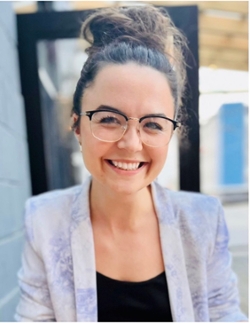
My name is Michaela Sidloski, and I am in the final year of my PhD in Environment and Sustainability at the University of Saskatchewan. With an educational background in regional and urban planning, I consider myself primarily a social scientist, with specializations in cartography, GIS, and transdisciplinary (TD) scholarship. In my doctoral research project, I am working toward improving climate change adaptation planning processes for resource-based communities in Canada by considering the effect of social identity factors (like gender, culture, and socioeconomic status) on how people experience and respond to climate impacts. I was fortunate to be able to attend the first “mini-TILL” in Germany in summer of 2022, where I gained invaluable experience through being part of a TD research process that emphasized safety, support, and learning from mistakes (instead of avoiding them). I love playing the piano, cooking, and connecting with people and other beings. I believe the most important thing I can be is a student, and I strive never to stop listening and learning.
Juri Häbler (Eberswalde University for Sustainable Development - Germany)
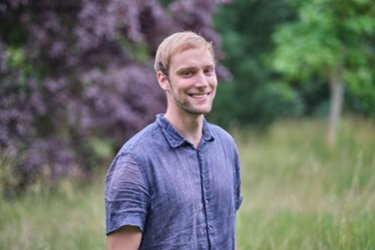
I am a graduate student in Global Change Management at Eberswalde University for Sustainable Development. My research interests include China, Biosphere Reserves, Nature Conservation, Climate politics and communication.
I participated in the first mini-TILL in Germany, which provided my with many new insights and friends all across the world, furthermore it was one of the best learning experiences which I have made so far.
From my perspective, transdisciplinary research and work are the added effort and time which we need to spend, to find truly sustainable solutions for the future.
Josie Ward (University of Saskatchewan - Canada)
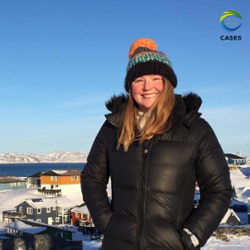
I am a graduate student in the School of Environment and Sustainability. I hold a Master of West Nordic Studies, Governance and Sustainable Management from the University of the Faroe Islands, awarded in 2020. My current research focuses on the contribution of renewable energy projects to community development in northern Norway.
I attended the Winter 2023 Till in Germany. During the Till I gained interpersonal skills and the ability to work with a variety of different backgrounds. What I appreciate most about TD research is the flexibility it provides.
Purity Rima Mbaabu (University of Nairobi - Kenya)
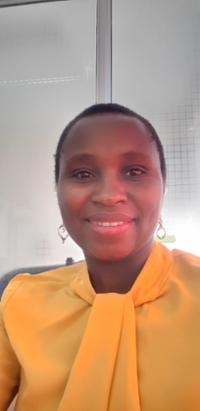
Purity is a transdisciplinary researcher with over 15 years of experience in climate change, Natural Resources Management, policy analysis, GIS and RS, sustainability, project development and management, teaching, monitoring and evaluation, biodiversity assessment, GHG emissions accounting, corporate sustainability and SDGs. She holds an MSc degree in Geo-information and Earth Observation for NRM from ITC, University of Twente, Netherlands, and a Bachelor’s degree in Geography from Moi University, Kenya. She is pursuing a PhD in Climate Change and Adaptation at the University of Nairobi and woody weeds project (www.woodyweeds.org) at CABI-Switzerland. She has contributed to several scientific publications and worked in multiple projects and organizations globally including the Woody weeds project-CABI, Switzerland on invasive plant species; TRANSECTS-Canada & Germany on transdisciplinary research for sustainability of UNESCO Biosphere Regions; Research4Development (r4d)-Switzerland on ecosystems evidence utilisation in transformative development pathways; International Network for Government Science Advice (INGSA)-New Zealand on evidence use in policies for Covid-19 response; CGIAR (CIFOR-ICRAF) on climate-smart agriculture; University of Edinburgh - UK on Carbon and REDD+; Green Belt Movement on environmental conservation; Voices4Change (V4C)-Kenya/Sweden on urban food systems and food security; Clinton Global Initiative University Program on project development and management; Chuka University-Kenya; and SESYNC Program-University of Maryland, USA. She currently serves as a board member of the Student and Trainee Advisory Round Table (START) on TD research under the TRANSECTS program-University of Saskatchewan, Canada.
She has interest in SDGs, transdisciplinarity, sustainability, climate change adaptation and mitigation, biodiversity conservation, natural climate and nature-based solutions, renewable energy; ESG, corporate sustainability, climate-smart agriculture and landscapes, climate modelling, carbon and GHGs emission accounting, and gender mainstreaming in development initiatives. She participated in the TRANSECTS first full TILL in 2022-2023 in Germany, where she was greatly impacted by the huge, yet untapped potential of TD research in delivering sustainability solutions for the management of complex socio-ecological systems. With regards to TD approach, she particularly likes the inclusion of non-academic actors, co-creation of knowledge, reflection and the multidisciplinary composition of the researchers. She says that “TD approach exposes the complex social sustainability challenge owing to the cultural and disciplinary diversity of TD teams. These need to be effectively managed to realize the potential of TD in addressing global sustainability challenges”. She enjoys travelling, family-time, socializing and networking.
Charlotte Griestop (Eberswalde University for Sustainable Development - Germany)
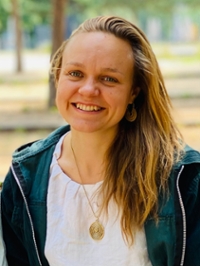
I am a graduate student in Forestry System Transformation at Eberswalde University for Sustainable Development and I attended the Winter 2023 TILL in the German biosphere reserve Schorfheide-Chorin with a focus on forest management, which not only provided me with interesting conversations with the BR landscape and with forestry practitioners but also has been an enriching intercultural learning journey around diverse perspectives, personalities, backgrounds and cultures.
I am passionate about the role of nature connection for sustainability transformations, about diverse knowledge systems, how to host spaces of true collaboration and connection, and how that links to transdisciplinarity.
I am holding a Bachelors in Environmental Studies and Economics from Leuphana University in Germany and a Masters in Strategic Leadership towards sustainability from BTH university in Sweden. Furthermore, I am a wilderness mentor and a flow game host, as well as a practitioner of Theory U and the Art of hosting and harvesting conversations that matter.
Enya Munting (Rhodes University - South Africa)
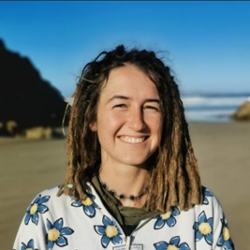
Research interest: Pathways to kinder conservation systems, communication between science and society, transdisciplinary enquiry
I attended the first, mini-TILL in Germany in August 2022. The experience was incredible for a variety of reasons, mostly because it showed me new, better ways for education and collaboration to occur and instilled a lot of hope for the future in me. I met an incredible group of new friends and I firmly believe that the experience at the mini-TILL has changed my outlook on conservation by giving me some of the knowledge and tools that we need to be able to properly solve wicked problems faced in the sector today.
Transdisciplinary approaches to research and work have been integral to my way of engaging with the world and I have found that they enable a more holistic understanding of complex issues and solutions that are more likely to work. My MSc project uses both ecological and social sciences to understand how the commercial linefishing community in one of South Africa´s provinces is being impacted by Marine Protected Areas and their management. Although I still have a long way to go before I finish this project, I can already see the value of using different types of knowledge in answering complex questions such as how protected areas impact people who rely on natural resources for a living, and how these impacts can be improved for long term sustainability. The transdisciplinary-aligned approach that I have taken has enabled me to understand more about the complexities that exist in this system and how they might be solved for kinder, more effective conservation systems in the future.
I believe strongly that conservation is about finding pathways to a pleasant future for all life and that we humans need to find a way back to seeing ourselves as a part of nature, in order for this to become a reality. My work explores the complex relationships between humans and the rest of nature, and I love learning from anyone who has a thought on these matters.
Kwanele Siyengo (Rhodes University - South Africa)
